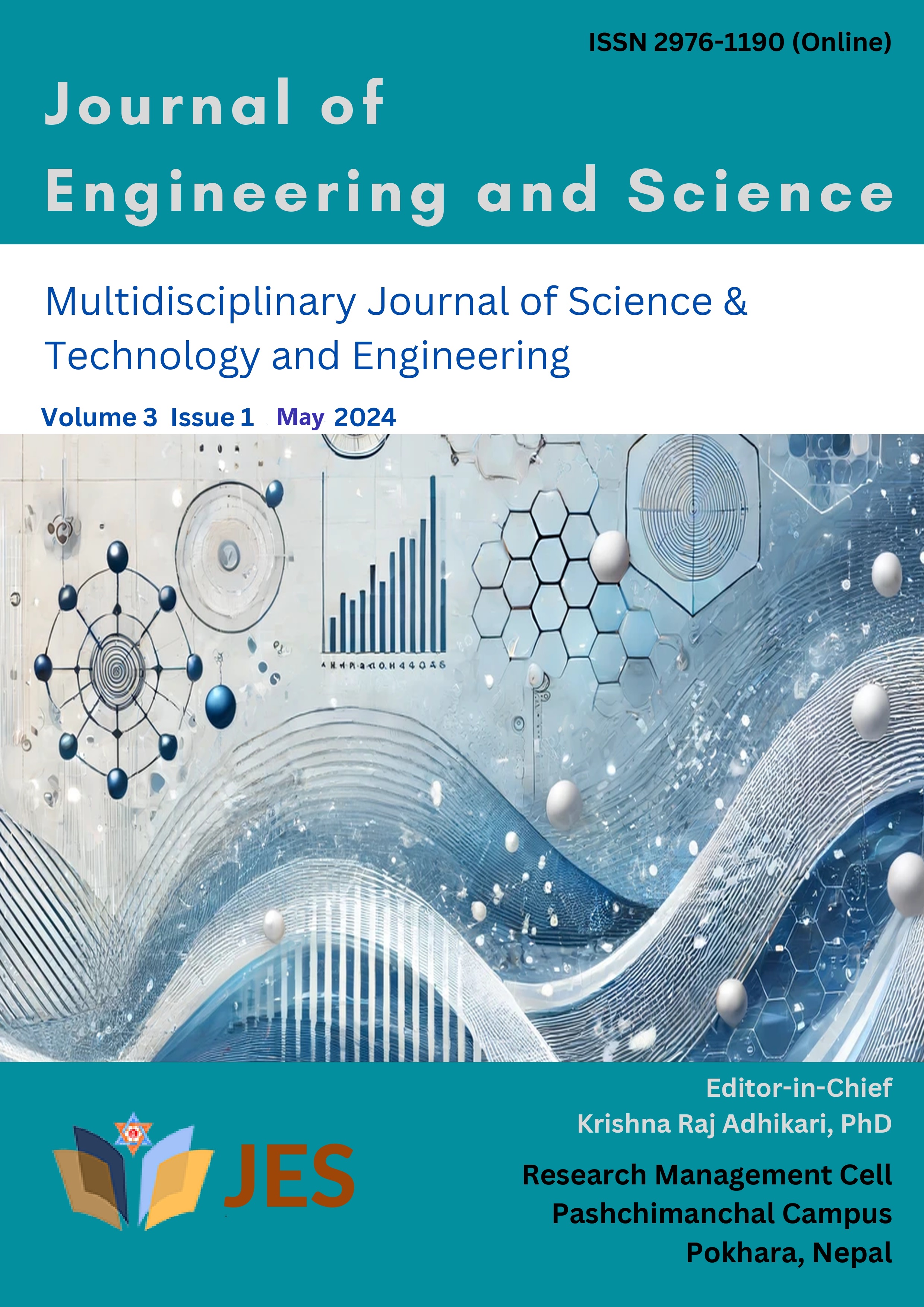Concrete Compressive Strength Prediction by Ensemble Machine Learning Approach
DOI:
https://doi.org/10.3126/jes2.v3i1.66249Keywords:
Concrete compressive strength, Ensemble machine learning, Bagging, XGBoost, StackingAbstract
The prediction of concrete compressive strength is a crucial aspect of ensuring the structural integrity and durability of construction projects. In recent years, machine learning approaches have improved upon the limitations of empirical formulas and laboratory testing methods for predicting concrete compressive strength. This study utilizes ensemble machine-learning techniques, such as Bagging, XGBoost, and Stacking models, to enhance the accuracy of concrete compressive strength prediction models. A five-fold cross-validation technique was applied to mitigate the problems of underfitting or overfitting in the regression model. Furthermore, various statistical indices were employed to compare the forecasting performance of these ensemble techniques. The prediction performance of this research revealed that XGBoost achieved the highest R-squared value of 93%, followed by Stacking and Bagging regression models at 92%. Consequently, this research underscores the potential of ensemble techniques as valuable tools in the domain of civil engineering, paving the way for more reliable and efficient construction practices.
Downloads
Downloads
Published
How to Cite
Issue
Section
License
Copyright (c) 2024 The Author(s)

This work is licensed under a Creative Commons Attribution 4.0 International License.
CC BY: This license allows reusers to distribute, remix, adapt, and build upon the material in any medium or format, so long as attribution is given to the creator. The license allows for commercial use.




